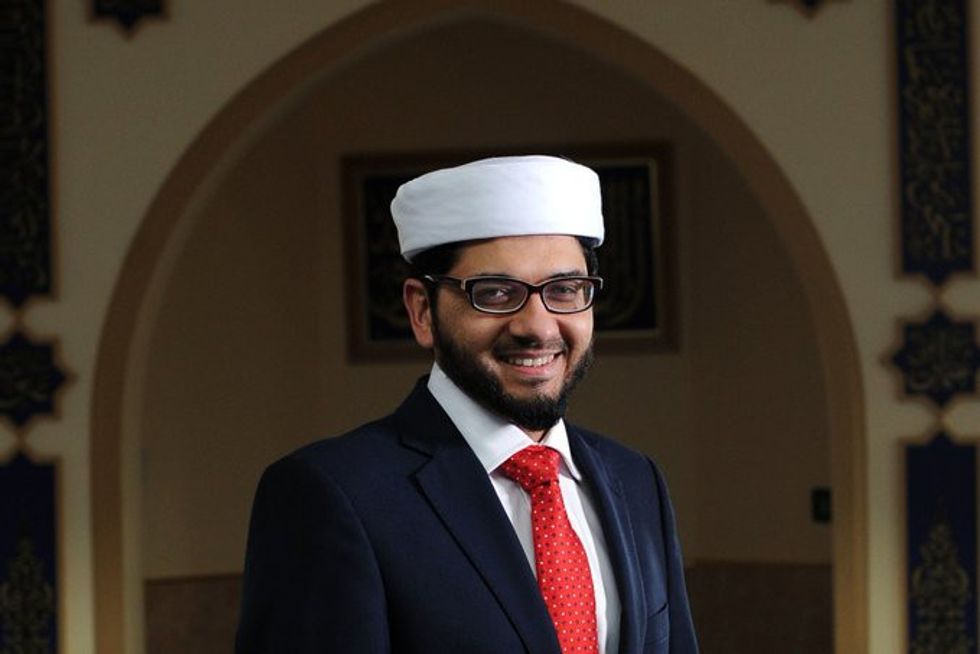THE past year was marked by significant global events, and the death and devastation in Ukraine, the Middle East and Sudan – with diplomatic efforts failing to achieve peace – have tested our values.
The involvement of major powers in proxy wars and rising social and economic inequalities have deepened divisions and prolonged suffering, with many losing belief in humanity. The rapid social and political shifts – home and abroad – will continue to challenge our values and resilience in 2025 and beyond.
Last summer’s riots demonstrated how misinformation and inflammatory rhetoric, ignited by a tiny minority of extremists, can lead to violence on our streets. It followed years of extreme voices – some media outlets, among certain politicians, and within some thinktanks – echoing hatred and demonising Muslims and migrant communities in the national discourse.
The heartening response to the riots, by the overwhelming majority of Britons, demonstrated that they reject prejudice, racism and demonisation.
Our challenge is tapping into local spirit and building a similar spirit at a national level. Sustained investment is required to better understand the ideologies, cultures and beliefs that are shaping our growing multiethnic communities so that strong relationships can be fostered between communities.
While polarisation has been growing, I have been involved in several local bridgebuilding conversations, in particular those facilitated by MINAB and Light Foundation charity, enabling a constructive dialogue in mosques. This project has aided conversations between some extreme far right sympathisers coming into mosques to express their anger, frustration and grievances over Muslims and minority groups’ “taking over their country, their jobs” and “invaders Islamising Britain”.
It has been deeply emotional and insightful listening to recent arrivals sharing their experiences of escaping death and violence, legitimately entering the country, and working hard to financially support their families while regularly experiencing hatred.
Such encouraging encounters give me hope as they help dispel misinformation and foster relationships. At Makkah Mosque in Leeds, we have seen participants hugging the ‘other’ after listening to their perspectives and experiences. Despite apparent differences, people share the same concerns. They want safety, stability and prosperity for themselves and their neighbours.
In the previous year, we also saw that interfaith relations have been profoundly fractured following the conflict in Gaza.
The lived reality of Muslim Jewish communities, compounded by the exponential rise in antiMuslim hatred and antiSemitism has intensified a sense of trepidation, vulnerability and suspicion. However, the future does not have to be plagued with fear, devastation and bloodshed. We can either choose to be bystanders or stand up for the humanitarian imperative.
Government statistics in 2024 showed almost two in five religious hate crimes (38 per cent) were targeted against Muslims,. The monitoring group Tell Mama UK recorded nearly 5,000 incidents of antiMuslim hate between October 7, 2023 and September 30, 2024. Surveys by Tell Mama demonstrate the importance of seeing how the normalisation of antiMuslim attitudes predates both October 7, the subsequent bloodshed in Gaza and the summer riots.
Greater Manchester Police reported a spike in Islamophobic offences from an average of 39 per month to 85 in August 2024, while West Yorkshire Police recorded a similar rise from 39 per month to 94 during the same period. The scale and nature of antiMuslim prejudice is still underplayed in our country.
If the previous year has taught us anything, it is that social cohesion cannot be an afterthought. The government rapidly condemning the racist violence, calling out antiMuslim prejudice and restoring order shortly after the Southport riots, was effective in rebuilding trust. There must be a strategic approach to cohesion and to resilience risks in our communities and neighbourhoods.
The path forward requires understanding people’s legitimate concerns about immigration and integration; listening and responding with authenticity and purpose; rebuilding trust through consistent investment and engagement; allowing people to reclaim pride in the places they call home; prioritising equity and equal citizenship for all so groups or communities are not isolated or demonised because of their identities; and taking a collaborative approach to achieving impactful and sustainable solutions.
Any national social cohesion strategy, in the new year, should not see those marginalised or demonised as a problem to be managed, rather as equal citizens of British society who are part of the solution to achieving an inclusive and cohesive society.

Imam Qari Asim is chair of Mosques & Imams National Advisory Board (MINAB), and trustee of British Future and The Light Foundation.






 Heehs describes two principal approaches to biographyAMG
Heehs describes two principal approaches to biographyAMG











 David Beckham wearing a David Austin Roses "King's Rose" speaks with King Charles III during a visit to the RHS Chelsea Flower Show at Royal Hospital Chelsea on May 20, 2025Getty Images
David Beckham wearing a David Austin Roses "King's Rose" speaks with King Charles III during a visit to the RHS Chelsea Flower Show at Royal Hospital Chelsea on May 20, 2025Getty Images